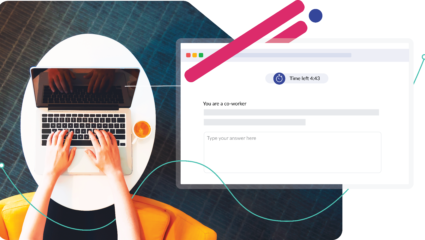
Being empathetic is important. Can you learn empathy?
It’s official – empathy among young people has declined significantly over the past few decades. A University of Michigan study, which analyzed data on empathy from almost 14,000 college students gathered between 1979 and 2009, found a 48% decrease in empathetic concern and a 34% decrease in perspective taking, which is the ability to look at things from another person’s point of view. Though the exact causes for these declines is hard to pinpoint, prior research has identified the rise of social media, smaller family sizes, as well as the stronger pressure to succeed professionally and academically as potential reasons. In addition, new research indicates that individualism, the belief that each person is unique and should be self-reliant is rising globally. This likely stems from increased socioeconomic development, and also contributes to this decline in empathetic professionals.
“Empathy is simply listening, holding space, withholding judgment, emotionally connecting, and communicating that incredibly healing message of you’re not alone.” Brene Brown
In our previous post, we explored what empathy is – the ability to understand another person’s thoughts and feelings in a situation from their point of view, rather than your own – and the three types of empathy: cognitive, emotional and compassionate.
But what’s the big deal about empathy? Will it help you succeed in your career and relationships? Can it be learnt?
The answer is yes, empathy is important, can help you succeed both personally and professionally, and it can be learned, like most skills, with practice.
First and foremost, empathy helps you establish and build social connections with others. Having a social support network is in and of itself beneficial. Research has found that having social relationships is linked to many aspects of health and wellness, as emotional support is an important protective factor when dealing with stress. It also curbs loneliness, reducing the risks of health problems including cardiovascular disease, decreased immunity and depression. Without empathy, people struggle to relate to each other or think of the other individual’s interests, so relationships suffer.
Not surprisingly, the benefits of being able to connect with others also improve one’s professional life. This is especially noticeable in professions centred around helping others, such as healthcare, education, human resources and social work, where one interacts with many individuals daily from all walks of life. Being sensitive towards the emotions and perspectives of others allows those working in these fields to be more effective at their jobs. Doctors and nurses who practice empathy towards patients are more likely to develop an emotional connection with them. Their patients are more comfortable to disclose important medical information and follow their nurse’s or doctor’s advice when they feel their concerns have been heard. Even simple non-verbal interactions such as making regular eye contact have been found to affect a patient’s perception of empathy and corresponding health outcomes. In education, an empathetic teacher will be able to foster a safe, caring and inclusive classroom environment that is conducive to learning. They can work to understand their student’s personal situations and respond compassionately without losing the focus on student learning. Moreover, empathetic teachers are able to instil this value and skill in their students, setting them up for future success.
Not all of us are born natural empaths. Most individuals will learn empathy while growing up through observing the interactions of those around them. Luckily, no matter how old you are, it’s never too late to become more empathetic. Here are three ways you can actively practice empathy in your daily life.
1. Seek out new perspectives and experiences
“Putting yourself into someone else’s shoes” is difficult when you do not know enough about the other person. Start by learning about how other people live. Read articles and books from people of different backgrounds, volunteer at a social organization or start a conversation with a new co-worker or acquaintance! Being curious about others beyond your current social circle, having honest conversations with them and learning about their lives expands your ability to be empathetic.
2. Take the chance to emotionally connect with people
To make an empathetic connection with someone, it must go both ways – simply listening to them does not forge this connection. Instead, when people open up to you about their feelings, view it as an opportunity for you to identify with them and be vulnerable to them. Take the time to listen to them actively to understand where they are coming from without trying to problem solve right away. You might not have been in their exact position, but you can imagine or think back to a time where you had similar feelings and emotions. Though it’s not easy to have conversations about negative emotions and situations, training yourself to do so when the opportunity arises will increase your emotional intelligence.
3. Acknowledge your biases
We all have innate biases, most commonly centred around our race, gender, age or other visible features. These biases curb our ability to empathize with others as they cause false perceptions (e.g. everyone of the opposite gender are not fit to be leaders), which in turn influences our actions. Such biases also make us less willing to try to empathize with people from different backgrounds or experiences. Many of our biases are unconscious, but one way to learn what biases you hold is to take an unconscious bias quiz. This quiz was created by Project Implicit, a non-profit organization created by researchers at Harvard, the University of Washington and the University of Virginia. Once you are aware of your bias, you become more aware of yourself and others, creating empathy.
Learning to lead with empathy doesn’t happen overnight, but takes practice, awareness and educating yourself on other people, as well as your own bias.
For additional resources on how to practice empathy, we have compiled a list of resources:
- Developing Empathy as Practice by Stephanie Briggs
- 6 Ways to Master Your Empathetic Abilities
- How to be More Empathetic
- 7 Books that will help you develop more empathy
- Understanding Empathy
- Empathy in Healthcare
This is part one of a two part series on empathy. To see the first part, click here. This blog is intended for learning purposes only, and is not a study guide for the Casper test.
Photo by Clay Banks on Unsplash


